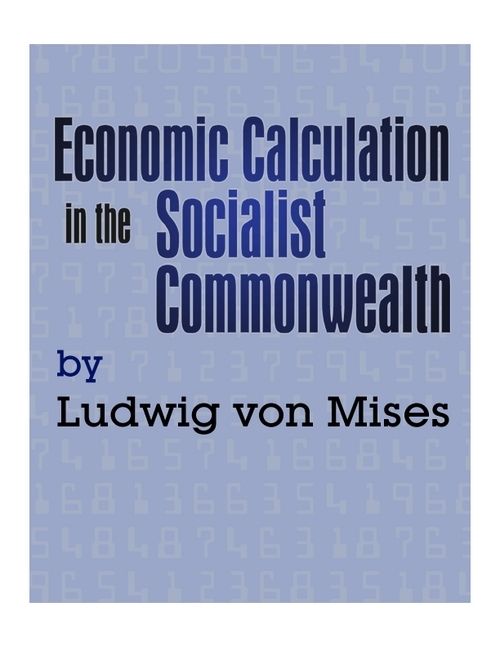What do you think?
Rate this book


74 pages, Paperback
First published January 1, 1920
It will be evident, even in the socialist society, that 1,000 hectolitres of wine are better than 800, and it is not difficult to decide whether it desires 1,000 hectolitres of wine rather than 500 of oil. There is no need for any system of calculation to establish this fact: the deciding element is the will of the economic subjects involved.
Only under simple conditions can economics dispense with monetary calculation. Within the narrow confines of household economy, for instance, where the father can supervise the entire economic management, it is possible to determine the significance of changes in the processes of production, without such aids to the mind and yet with more or less of accuracy. In such a case the process develops under a relatively limited use of capital. Few of the capitalistic roundabout processes of production are here introduced: what is manufactured is, as a rule, consumption goods or at least such goods of a higher order as stand very near to consumption-goods…In the narrow confines of a closed household economy, it is possible throughout to review the process of production from beginning to end, and to judge all the time whether one or another mode of procedure yields more consumable goods.
Now, in the economic system of private ownership of the means of production, the system of computation by value is necessarily employed by each independent member of society. Everybody participates in its emergence in a double way: on the one hand as a consumer and on the other as a producer. As a consumer he establishes a scale of valuation for goods ready for use in consumption. As a producer he puts goods of a higher order into such use as produces the greatest return.
Every good will go through a whole series of stages before it is ready for use. In the ceaseless toil and moil of this process, however, the administration will be without any means of testing their bearings. It will never be able to determine whether a given good has not been kept for a superfluous length of time in the necessary processes of production, or whether work and material have not been wasted in its completion. How will it be able to decide whether this or that method of production is the more profitable?
[O]nce this decision has been taken [on what to produce based on the information gathered of consumer demand], the real task of rational economic direction only commences, i.e., economically, to place the means at the service of the end. That can only be done with some kind of economic calculation. The human mind cannot orientate itself properly among the bewildering mass of intermediate products and potentialities of production without such aid. It would simply stand perplexed before the problems of management and location.
[T]he mind of one man alone — be it ever so cunning, is too weak to grasp the importance of any single one among the countlessly many goods of a higher order. No single man can ever master all the possibilities of production, innumerable as they are, as to be in a position to make straightway evident judgments of value without the aid of some system of computation.
Mises’s pathbreaking and central insight is that monetary calculation is the indispensable mental tool for choosing the optimum among the vast array of intricately-related production plans that are available for employing the factors of production within the framework of the social division of labor. Without recourse to calculating and comparing the benefits and costs of production using the structure of monetary prices determined at each moment on the market, the human mind is only capable of surveying, evaluating, and directing production processes whose scope is drastically restricted to the compass of the primitive household economy...a single human mind — even if it were miraculously endowed with complete and accurate knowledge of the quantities and qualities of the available factors of production, of the latest techniques for combining and transforming these factors into consumer goods, and of the set of all individuals’ value rankings of consumer goods — would be utterly incapable of determining the optimal pattern of resource allocation or even if a particular plan was ludicrously and destructively uneconomic
[T]he extent to which socialism is in evidence among us constitutes only a socialistic oasis in a society with monetary exchange, which is still a free society to a certain degree. In one sense we may agree with the socialists’ assertion which is otherwise entirely untenable and advanced only as a demagogic point, to the effect that the nationalization and municipalization of enterprise is not really socialism, since these concerns in their business organizations are so much dependent upon the environing economic system with its free commerce that they cannot be said to partake today of the really essential nature of a socialist economy.